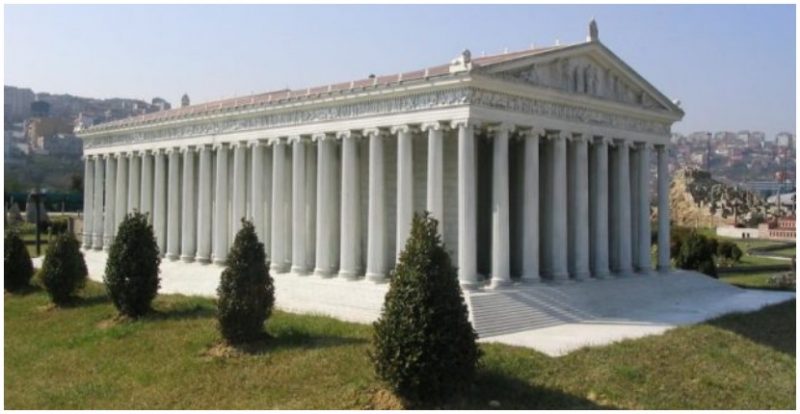It’s unbelievable how far some people will go to gain a little notoriety, and this era of the 24-hour news cycle, online videos, and social media rants has only made matters worse. It seems like news travels practically at the speed of light these days, and just about anyone can become famous for just about anything, fulfilling artist Andy Warhol’s prediction that everyone gets 15 minutes of fame.
But it was always thus; folks have been pulling dumb stunts for a little attention for centuries. Like Herostratus, for example, way back in 356 BC. Never heard of him, right? Let’s just say that if he pulled the stunt today that he pulled back then, his actions would have won him 30 years or more behind bars.
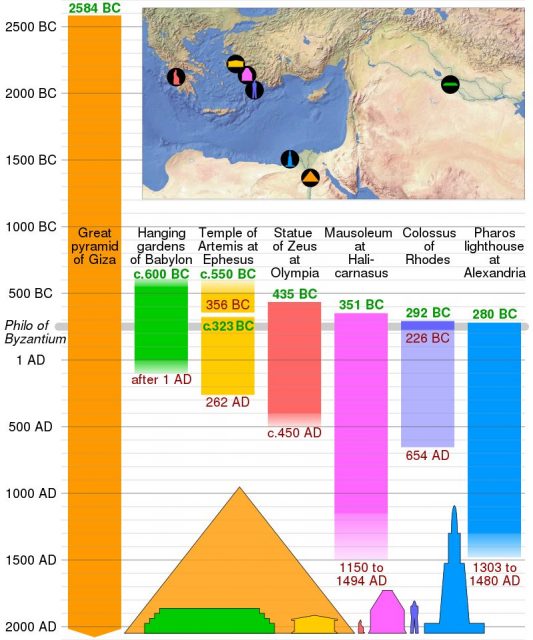
We don’t know a great deal about this man’s life, even today, but he is famous – or rather, infamous – for one idiotic deed. The Biblical Archaeology Society tells the tale of how Herostratus burned down the Temple of Artemis in Ephesus, an ancient Greek city situated not far from the modern-day town of Selçuk, Turkey. And why did he do it? The same reason people around the world still pull stupid stunts – he wanted his 15 minutes of fame.
Considered one of the Seven Wonders of the Ancient World, the temple was a glorious structure designed by architect Chersiphron, to pay tribute to Artemis, goddess of the hunt and, curiously, childbirth. Pliny the Elder wrote that it was the first temple to built entirely from marble and that 36 of the temple’s 127 columns were carved with reliefs.
It was erected in the 6th century BC to replace a less ornate building in her honor that probably had been destroyed by flood waters, according to SciHi. Society, government officials, and just about everyone else hoped it would stand forever, but little did they know that Herostratus would come and lay waste to the temple all by himself.
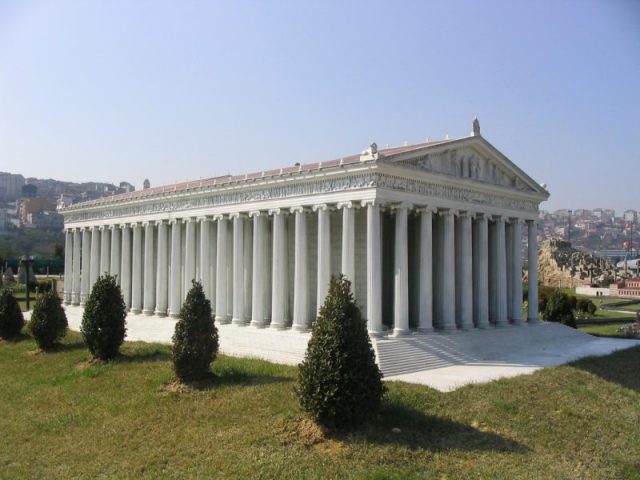
He crept past the guards and strategically placed oil-soaked cloths around some of the temple’s wooden furnishings, and – boom! – the fire quickly spread to the roof beams and the entire structure was engulfed in flames.
Authorities rallied to launch an investigation into the blaze, but it never even started. They didn’t need to search for the culprit because Herostratus walked into authorities’ headquarters and spilled, telling anyone who would listen that he was the one behind the crime. According to Greek historian Theopompus (c. 380 BC – c. 315 BC) in his book Hellenics, his reason was simple: Herostratus wanted his name to be remembered forever.
Related Video: The recent Notre Dame fire – A look at the aftermath
https://youtu.be/JM1vOYQr1vI
All that remains of the original structure is one marble column. It was built with the financial backing of Croesus, the last king of Lydia, who was renowned for his wealth. It seems no expense was spared in construction of the Temple of Artemis as the marble from which it was built was fantastically expensive. But the hope was that the temple would stand for centuries, if not eternity. It took several decades to complete. And then along came Herostratus.
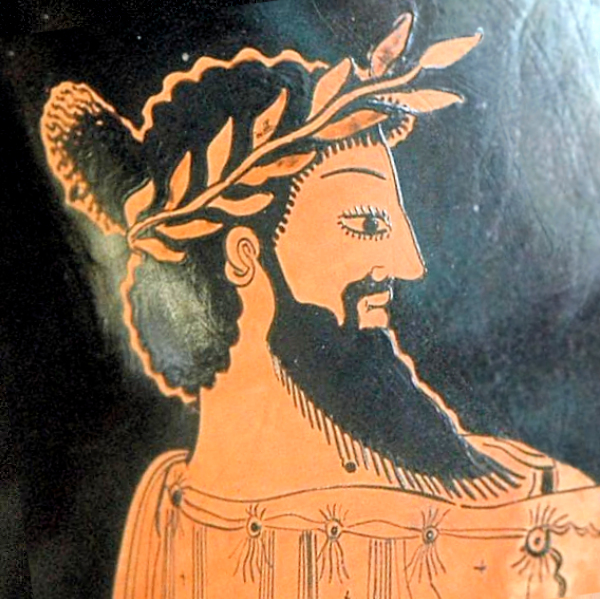
It seems ironic that such a magnificent, large building could be brought down by a lone individual with oily rags, but it was. Herostratus then promptly turned himself over to the authorities, though he no doubt wished quite quickly that he hadn’t. He was put on the rack and summarily executed – in public – to discourage any like-minded souls from entertaining a similar idea.
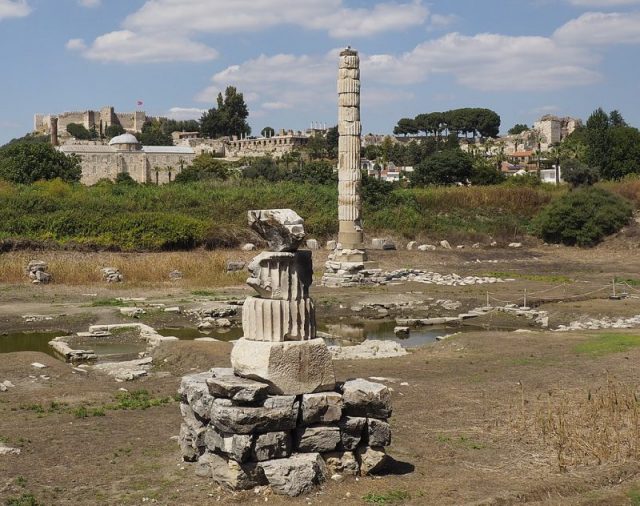
Herostratus’ name was all but removed from public records at the time, as authorities did not want to allow his name or deed to garner attention from the public who often get a perverse thrill in learning of the misdeeds of criminals.
Read another story from us: Did Booby Traps Really Exist in Ancient Egyptian Tombs?
But soon enough, records stopped being expunged, and historians took note of the man who destroyed one of the region’s most prized and beloved buildings, all because he wanted his name to go down in history. And it has, but as a cautionary tale of the dangers of seeking fame, not for anything of merit or importance, but for fame itself. Perhaps mankind will always seek attention, sometimes for good deeds and sometimes for ill. Herostratus was simply one more example of that fatal character flaw.
